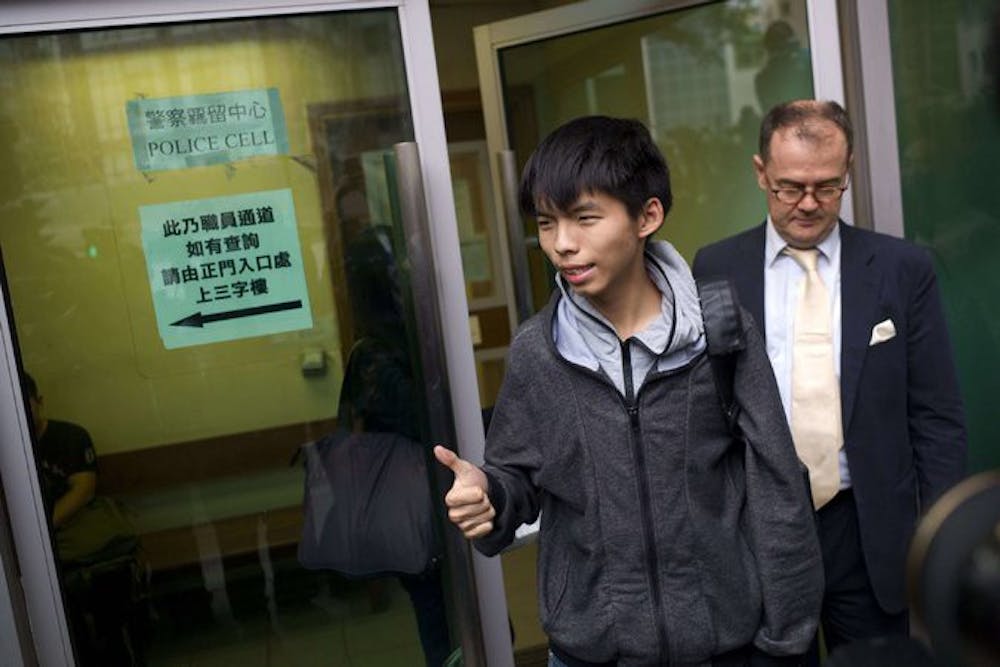By Mackenzi Klemann | Echo
The three founders of the Hong Kong Occupy Central protests turned themselves in to authorities on Wednesday, following increasingly brutal police crackdowns on the movement this weekend.
Leaders said they could no longer guarantee the safety of protesters and encouraged dissidents to back down following a clash with police late Sunday. Al Jazeera reported that dozens of people were injured in the clash-one of the worst nights of violence during the movement's three month period.
"As we prepare to surrender, we three urge the students to retreat, to put down deep roots in the community and transform the movement," Occupy leader Benny Tai said at a press conference on Tuesday, according to Al Jazeera.
Occupy leaders also stated that by turning themselves in, they wished to further protesters' aims while respecting the rule of law.
The co-founders were joined by 62 other protesters, the LA times reported.
Each of the three founders were released and allowed to walk free in what the LA Times called "an innocuous administrative procedure." Hong Kong Police said they will investigate the matter.
Since the movement began, there has been more than 300 demonstrators arrested. Prosecutors in Hong Kong and their superiors in Beijing must determine how aggressively they wish to prosecute protesters.
Charges range from assault, obstruction of police and possession of an offensive weapon to unlawful assembly. More serious charges, such as rioting, can carry a 10-year sentence.
"Surrendering is not an act of cowardice," Tai said, according to Al Jazeera. "It is the courage to act on a promise. To surrender is not to fail, it is a silent denunciation of a heartless government."
Many protesters refused to leave, though, and announced a hunger strike beginning Tuesday.
"The occupy campaign needs to be escalation, occupation of more areas or maybe government buildings," Wong Yeung-tat, a member of protest group Civic Passion, told the New York Times this week. "The campaign at this stage has become too stable."
Some agitators are frustrated with the meek approach of most protesters and argue only stronger action will force real changes from the Hong Kong government and Chinese Communist Party.
Beginning in September, students and activists gathered outside the Hong Kong government headquarters and occupied several major intersections to protest electoral restrictions proposed by Beijing government officials. Several hundred demonstrators breached the formerly public Civic Square-which had been barred from the public since July-and have continued to engage in civil disobedience.
Hong Kong's police response to demonstrators has at times been violent. Authorities called for an official end to protests on Oct. 6, which was ignored by protesters.
The pro-democracy demonstrators are mostly students and young activists led by several groups and organizations. The protests, which are taking place at three base camps in Hong Kong, are largely peaceful. But as adversarial groups, such as Civic Passion, take on a more prominent role, tensions between various protest groups grow.
According to the New York Times, the future of the movement remains uncertain as local residents have grown uneasy with the constant presence of protesters and the increasing influence of agitators.




